Handling Tire Blowouts: A Must-Know for Drivers
Understanding Tire Blowouts: The Most Common Driving Emergency
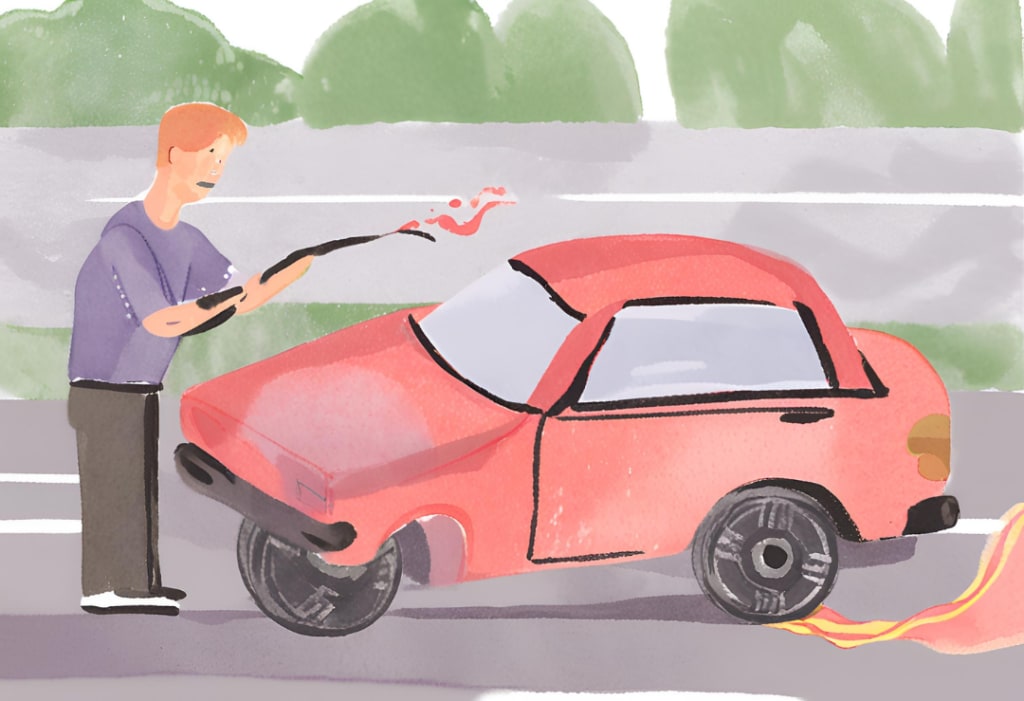
For many new drivers, the thought of encountering an emergency while driving can be daunting. At Get Drivers Ed, we equip our students with the knowledge and skills necessary to handle common driving emergencies confidently. One of the most frequent incidents on the road is a tire blowout. This blog explores what causes tire blowouts, how to handle them, and why learning these skills as part of your Drivers Ed is crucial.
What Causes Tire Blowouts?
A tire blowout occurs when a tire rapidly loses all its air, causing it to deflate and fail. This can be a terrifying experience, especially at high speeds. Several factors can lead to a tire blowout:
Underinflation: Tires that are not adequately inflated wear down more quickly and unevenly, increasing the risk of a blowout. Underinflation causes the tire to flex more as it rolls, generating excessive heat that can weaken the tire structure.
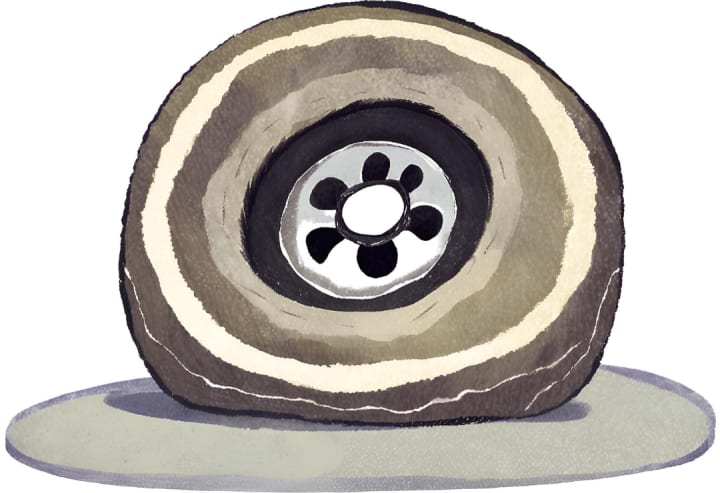
Overloading: Exceeding your vehicle’s weight limit puts additional stress on the tires, which can lead to failure. Overloading can cause the tires to overheat and their components to separate, leading to a blowout.
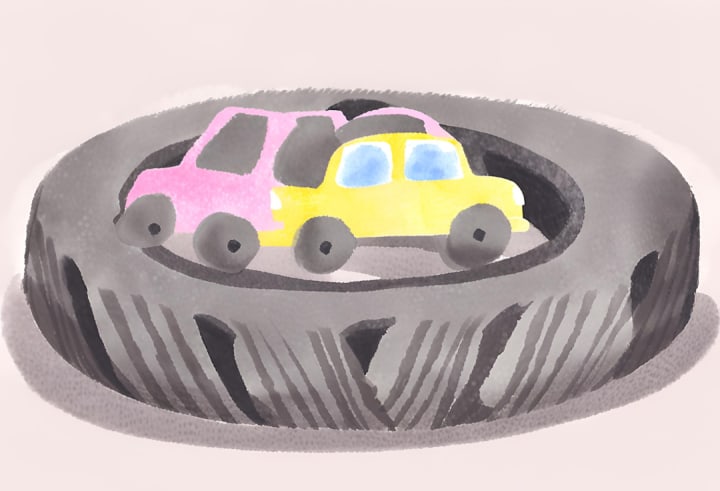
Damaged Tires: Tires that have sustained damage or are worn out are more susceptible to blowouts. Punctures, cuts, and abrasions can compromise the tire's integrity, making it prone to sudden failure.
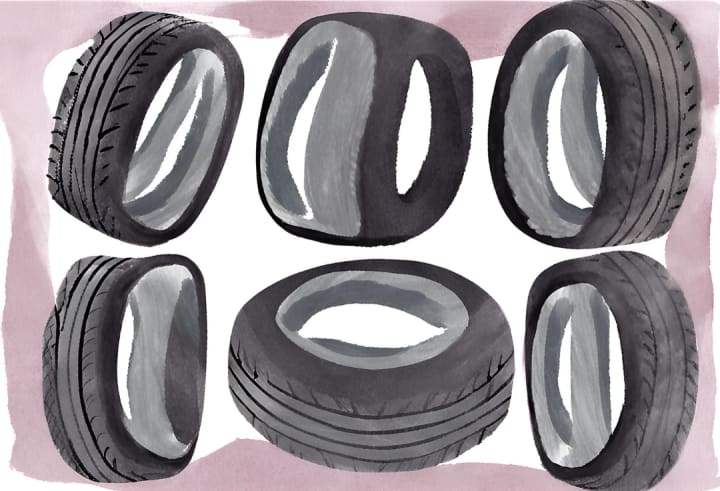
High Temperatures: In hot weather, the air inside the tires can expand, leading to increased pressure and potential blowouts. High speeds exacerbate this effect, making it more likely for tires to fail in the summer months.
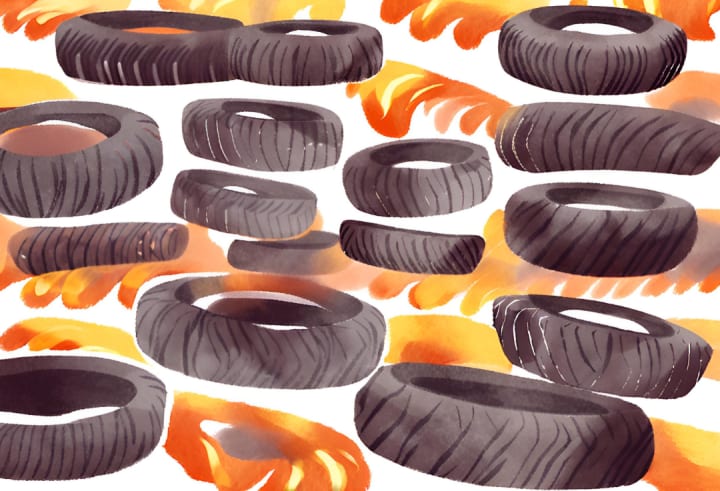
Road Hazards: Potholes, debris, and other road hazards can cause sudden tire damage, leading to a blowout. Even a small object on the road can cause a significant tire failure if hit at the right angle and speed.
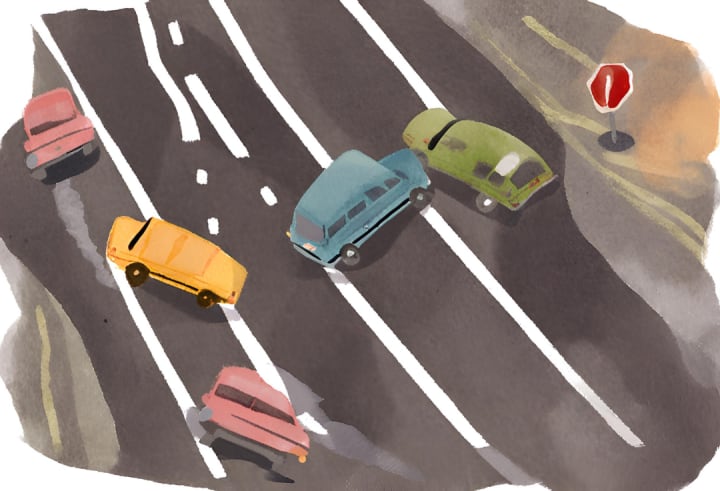
How to Handle a Tire Blowout
At Get Drivers Ed, our Drivers Ed courses include hands-on training to manage tire blowouts effectively. Here’s what we teach:
Do Not Panic: Keep a firm grip on the steering wheel and maintain your vehicle’s path. Sudden movements can make the situation worse, so it's important to stay calm and composed.
Do Not Brake Abruptly: Instead, gently apply the brakes once you have controlled the vehicle. Abrupt braking can cause loss of control, especially if the blowout occurs at high speed.
Slow Down Gradually: Let the vehicle slow down naturally before pulling over to a safe area. Gradual deceleration helps maintain control and prevents further damage to the vehicle.
Turn on Your Hazard Lights: Alert other drivers that you are experiencing difficulties. This can prevent accidents and make it safer for you to maneuver to a safe location.
Steer Straight: Try to keep the vehicle as straight as possible to avoid swerving or losing control. Corrective steering should be gentle and minimal to maintain stability.
The Importance of Regular Maintenance
Preventing tire blowouts starts with regular vehicle maintenance. At Get Drivers Ed, we stress the importance of:
Regular Tire Inspections: Checking for signs of wear and tear, such as cracks or bulges in the sidewalls. Inspections should be part of your routine vehicle check to catch potential issues early.
Maintaining Proper Tire Pressure: Regularly checking and adjusting tire pressure according to manufacturer recommendations. Properly inflated tires are less likely to overheat and fail.
Replacing Worn Tires: Not allowing tires to get worn beyond the point of safety. Tread depth should be monitored, and tires should be replaced when they reach the wear limit.
Alignment and Balancing: Ensuring your wheels are properly aligned and balanced to prevent uneven tire wear. Misalignment can cause tires to wear down faster on one side, increasing the risk of a blowout.
Why Choose Get Drivers Ed for Your Drivers Education
Choosing the right drivers education program is crucial, and Get Drivers Ed is committed to providing comprehensive training that includes dealing with real-life scenarios like tire blowouts. Our experienced instructors ensure that each student is prepared not only to drive but to handle unexpected situations safely. Our courses are designed to build confidence and competence, making sure that every driver knows how to respond to emergencies effectively.
Our program includes:
Expert Instruction: Our instructors are experienced professionals who provide practical, hands-on training.
Comprehensive Curriculum: We cover all aspects of driving, from basic skills to advanced emergency responses.
Flexible Scheduling: We offer flexible scheduling to accommodate busy lifestyles.
Supportive Environment: We foster a supportive and encouraging learning environment to help students succeed.
Conclusion
Understanding and managing driving emergencies such as tire blowouts is an essential skill for all drivers. At Get Drivers Ed, we ensure our students are equipped to handle these situations confidently and safely. Our comprehensive Drivers Ed courses cover everything from basic driving skills to advanced emergency responses. Don’t wait until you’re on the road to think about how to handle an emergency. Enroll in Get Drivers Ed today and be prepared for whatever comes your way.
Driving is not just about reaching your destination; it's about doing so safely. With the right training and preparation, you can navigate any challenge the road throws at you. Get Drivers Ed is here to ensure that every driver we train is ready to face the unexpected with confidence and skill. Join us and take the first step towards becoming a safer, more prepared driver.
About the Creator
Get Drivers Ed
Discover expert tips, driving safety insights, and the latest trends from Get Drivers Ed. Your online guide to mastering the road. Learn, drive, and lead!






Comments
There are no comments for this story
Be the first to respond and start the conversation.